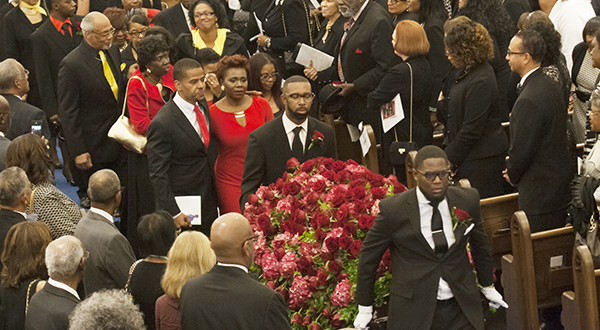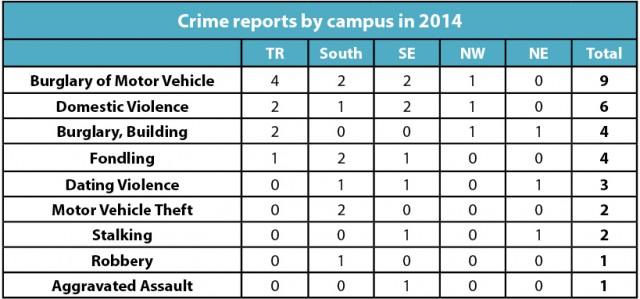By Erica McComas/ reporter
A career in solving homicides is not like the movies. It’s real life, a retired detective told NW students Oct. 7.
Detective Manny Reyes, who served 33 years with the Fort Worth Police Department, became a cop at 20 when he was not even old enough to buy ammunition at the local Kmart. But he said this all became a career that he loved.
In 1987, he was transferred to homicide. Some of his cases were accidental deaths, and some were intentional. He said he saw gruesome things such as people being gutted, body parts being amputated and even people who would murder children. But he liked his job because he loved bringing justice to victims’ families.
For a couple of years, Reyes worked for the FBI. During that time, the city council decided Fort Worth should add a cold case department. The qualification for that position called for a Spanish speaker, and Reyes was the only qualified applicant with homicide experience who was bilingual.
In his first year, Reyes discovered Fort Worth had 763 unsolved homicide cases from 1967 to 2003. When he started to work on cases, he went everywhere in the United States as well as Mexico to interrogate witnesses and suspects. He also went to multiple Texas prisons where employees knew him so well that he and the warden would play racquetball before he went to talk to prisoners.
“Back in the day, they didn’t have DNA [tests] like they do today,” he said.
Police used to catch people just by finding cigarette butts at crime scenes, Reyes said. When the suspect would come in to be interrogated, they would see how they smoked the cigarette and see if they picked the same brand. They also would look to see if they had a bite or some trait they could match to the crime scene evidence.
“DNA was the best thing for police officers,” he said. “It has made it much easier to catch criminals, and that’s what we want to keep our city safe.”
Among the more than 700 cases he covered in his career was a man wanted for murdering and then assaulting women and children after they were dead.
This man would use full, hard soda cans to knock women and children unconscious, Reyes said. Once he knew they were not moving, he would strangle the victims to death and sexually assault the dead body. When the man was caught, Reyes asked him why he sexually assaulted the victims when they were dead.
“[They] don’t fight back or scream,” the man told him. “It made it easier.”
When Reyes contacted the man’s wife who was living in Cleburne, she was shocked.
“‘My husband couldn’t have killed that little girl,’ the wife said, ‘because he loves children, and we were thinking about adopting.’” Reyes said. “Luckily, this man was caught before this happened.”
These situations can and will happen to anyone and anywhere, Reyes said. He showed pictures of the killers and even pictures of the crime scenes from cases he has worked. He said some of the serial killers did not look dangerous, but they were evil.
“The things they did you would never guess just by looking at them,” he said. “Truth stays the same, but lies change.”
His education never stopped, Reyes said. After retiring in 2012, he continued going to school. He said he loves learning the latest information because he loved being a detective.

























